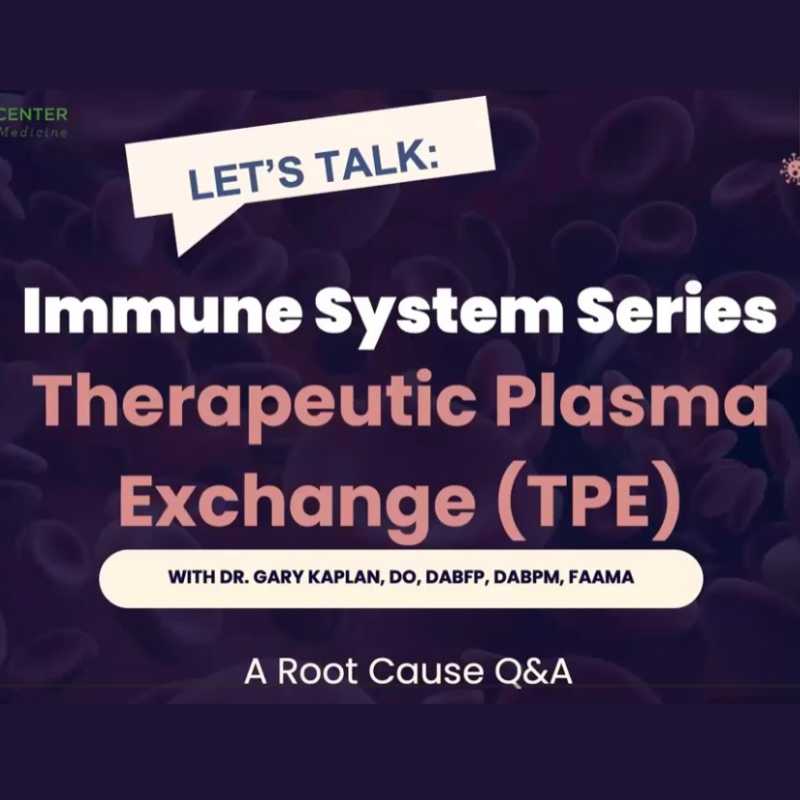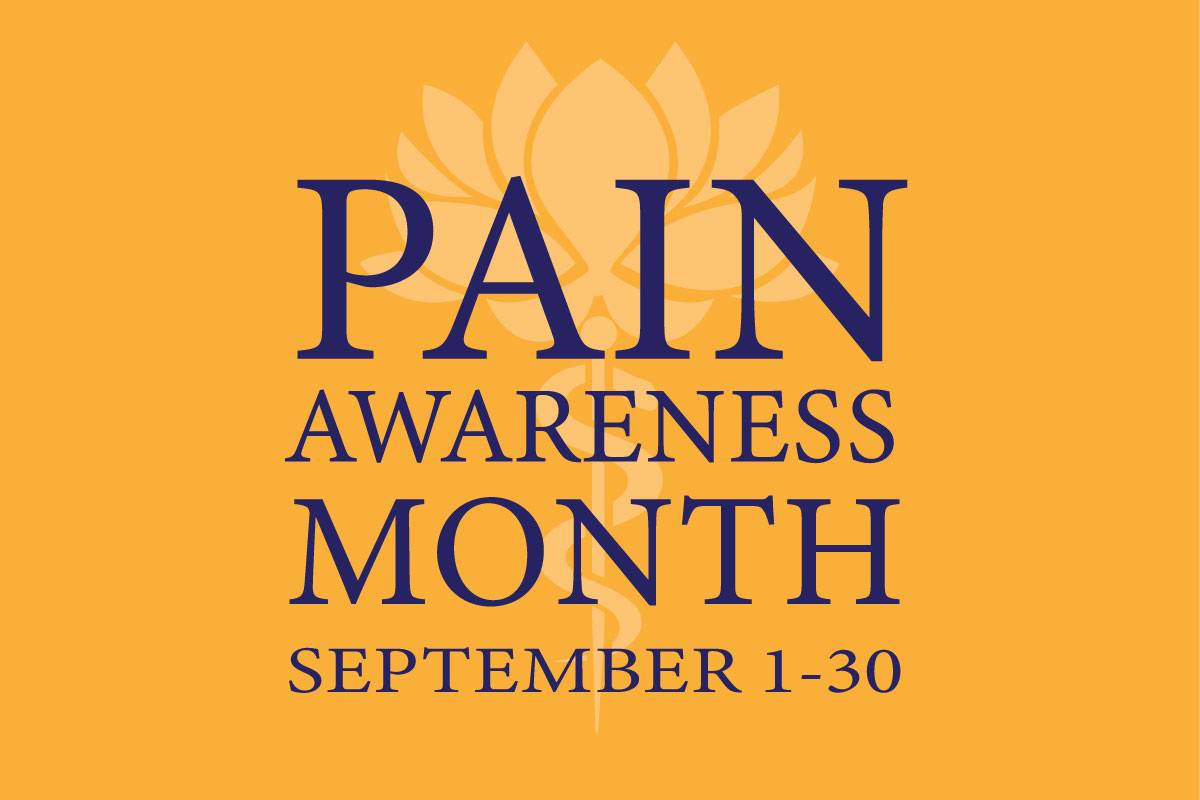
5 Ways We Can Keep Your Immune System Strong
December 10, 2025/by Kaplan Center
Want to Take Your Workout to the Next Level Next Year? These Tips Can Help
December 8, 2025/by Kaplan Center
Dr. Kaplan’s Dos and Don’ts of the Holiday Season
December 3, 2025/by Kaplan Center
Let’s Talk Webinar – A Root Cause Q&A
December 2, 2025/by Kaplan Center
Navigating Holiday Meals with Gut Issues: Simple Tips for a Comfortable Season
December 1, 2025/by Chardonée Donald, MS, CBHS, CHN, CNS, LDN
Craniosacral Therapy for TMJ | Say Goodbye to the Daily Grind
November 19, 2025/by Patricia Alomar, M.S., P.T.
From Compassionate Care to Personal Healing: A Letter to My Patients
November 18, 2025/by Kaplan Center
8 Steps to a Healthier Gut—and a Longer, Healthier Life
November 18, 2025/by Kaplan Center
Mid-Life Irritability & Fatigue Improved by Hormonal Balancing
November 13, 2025/by Lisa Lilienfield, MD
From Challenges to Change: Dr. Kaplan on Healthcare’s Biggest Challenges
October 29, 2025/by Kaplan Center
Overlooked Dangers of Mold Exposure and How to Stay Safe – Dr. Kaplan Talks to WUSA9
October 27, 2025/by Kaplan Center
Let’s ‘Fall’ Into Wellness: A Nutritionist-Approved Immune-Boosting Recipe for Cold and Flu Season
October 13, 2025/by Chardonée Donald, MS, CBHS, CHN, CNS, LDN
PANS/PANDAS – When Sudden Symptoms Signal Something More
October 9, 2025/by Kaplan Center
Beating Burnout, A Nutritionist’s Perspective
October 1, 2025/by Chardonée Donald, MS, CBHS, CHN, CNS, LDN
3 Things That Can Happen After Stopping GLP-1s
September 11, 2025/by Chardonée Donald, MS, CBHS, CHN, CNS, LDN
What Families Need to Know About COVID and Flu Season
September 3, 2025/by Kaplan Center
September is Pain Awareness Month
September 1, 2025/by Kaplan Center
Dr. Kaplan Spoke to Northern Virginia Magazine About COVID, Flu, and Immunity — Here’s What You Should Know
August 14, 2025/by Kaplan Center
“Why Do I Feel Like Crap?”: The Overlap Between Long COVID and Perimenopause
July 30, 2025/by Kaplan Center
Why People Are Turning to EMDR (and Why You Might Want to Too)
July 23, 2025/by Kaplan CenterAre you looking to improve your overall wellness?
Personalized care you can trust.
Our integrative, non-surgical treatment approach is highly successful in maintaining wellness and also treating chronic pain and illness. For more than 30 years, we have delivered superior, cutting-edge health care in the Washington, DC area.
QuickLinks
Contact Information
Tel: 703-532-4892
Fax: 703-237-3105
6829 Elm Street, Suite 300
McLean, Virginia 22101
Map It
Hours of Operation
Mon – Thu : 8 am – 5 pm, ET
Fri : 8 am – 12 pm, ET
An Important Reminder From Nurse Nan: Save Your Tick
/in Wellness/by Nan Kinder, RNWhile avoiding contact with ticks is the only way to prevent contracting a tick-borne disease it is not a reason to avoid outdoor activities. Taking steps to protect yourself from being attractive to ticks is one of the first lines of defense.
While ticks are most commonly found in wooded areas, they can breed and thrive around your home landscape as well. Being vigilant about the practices above will make a difference.
What should you do if you find a tick on you?
Save it!! Testing can be done on ticks to see if they are carriers of Lyme and other tick-borne illnesses (co-infections). If you’re not sure exactly how to remove it, this video shows very clearly how to remove a tick the right way.
Once you pull off the tick, place it inside a sealed zip-lock type plastic bag with a damp (not wet) paper towel. Do not soak in bleach, alcohol or preservative. The tick can be even months old and still be appropriate for testing.
Find a tick lab
There are a number of different labs that will perform tick testing. You can send the tick to a lab directly and do not need a doctor’s order. We use TickReport.com. You can place the order on their site by clicking the “Test A Tick” button. Complete the requested information, choose a test package (we recommend the comprehensive package), provide payment, and then send the tick as instructed. The prices range from $50 to $200.00 depending on the number of tests that you would like done. The results from this lab are received within 3 business days via secure email. Once you receive the results, you can share the information with your physician to guide your treatment.
If you have a known tick bite, do not wait for the results to contact your doctor; the sooner you are treated the better. Adjustments in treatment protocols can be changed if needed once you get the results back.
The importance of testing the tick
We are here for you, and we want to help.
Our goal is to return you to optimal health as soon as possible. To schedule an appointment please call: 703-532-4892 x2
“I Think I’m Losing My Mind”: When Treating Tick-Borne Illness Feels Worse Before It Gets Better
/in Conditions, Mental Health, Toxicity/by Kaplan CenterShe’s 23. Bright, motivated, kind and always eager to smile. She came to our office after years of searching for answers to her fatigue, body aches, temperature swings, and lightheadedness that started without warning.
Testing eventually revealed she was dealing with Babesia, one of the lesser-known but highly impactful tick-borne co-infections. We started a targeted treatment plan that included antimicrobials, detox support, acupuncture and mitochondrial nutrients. In the first few weeks, she felt hopeful, after having an occipital nerve block done, her headaches were less frequent, she had less body pain and her energy had started to return.
But then something changed.
When she was weeks into her protocol, her mom called the office one Monday morning, worried. Her daughter had become withdrawn, anxious and couldn’t sleep.. She said she felt “like I’m going crazy”. Her heart raced at night. She had dark, intrusive thoughts that made no sense to her. And worst of all, she had stopped her medication without checking in because she felt like she just couldn’t swallow anymore pills—afraid that the treatment was making her worse.
It’s a story we hear often.
What Was Happening?
The medications to kill the parasitic Babesia caused an overall inflammatory response of the brain.
She wasn’t losing her mind. The process of die-off reaction can trigger a wave of inflammation and neurotoxicity—especially in sensitive patients or when infections like Babesia are involved.
Babesia in particular is a red blood cell parasite that releases pro-inflammatory molecules, affects oxygen delivery, and can trigger severe mood and neurologic symptoms. Inflammatory cytokines can cross the blood-brain barrier, activating microglia (the brain’s immune cells) and producing symptoms like:
These are not just mental health concerns—they’re signs of neuroinflammation. And they are treatable—with the right tools and support.
What Helped Her?
Luckily, her family saw changes and brought her back in. She cried when we explained what was happening—but this time, with relief. She wasn’t broken. Her brain was inflamed, and her nervous system was overwhelmed by the die-off. We sat down together and made a plan:
But most importantly—we agreed that she would not stop treatment without calling us first. Because when you’re navigating a complex illness, especially one that hides in the nervous system, staying connected to your care team is as important as any prescription.
The Takeaway
Communication is the key to successful treatment…. Don’t assume it means you’re regressing—or broken. It may be a signal that your body is fighting hard—and just needs help navigating the process. Pause. Reach out. Let’s reassess and adjust the plan.
Tick-borne illnesses can affect every part of us—the body, the brain, the mood, and the spirit. But with the right support, healing is possible. And more often than not, you are far stronger and more resilient than you realize.
We are here for you, and we want to help.
Our goal is to return you to optimal health as soon as possible. To schedule an appointment please call: 703-532-4892 x2
A Patient’s Story: From Pushing Herself to Be Stronger—To Acceptance
/in Conditions/by Kaplan CenterShe came to me after years of struggling with chronic fatigue and pain. Her story was one we’ve heard many times, but it’s always deeply frustrating and all too familiar.
From a young age, she was the flexible one. A natural in gymnastics and dance, always praised for her agility and grace. But by her twenties, things started to shift. She began experiencing frequent sprained ankles and joint pain that never quite went away. She went to physical therapy and pushed through the pain to “get stronger.”
Over time, the pain spread—to her back, neck, and hips. Still, she kept going. Every trainer told her pain was part of progress—“no pain, no gain.”
So she kept pushing. Even as the injuries piled up.
Her joints began to dislocate and sublux with basic activities. She bruised easily, struggled to recover from even small cuts, and was repeatedly told she just needed to “build more core strength.” But no matter how hard she trained, her muscles stayed tight, her energy drained. She felt like she was falling apart.
Then came the other symptoms.
Her stomach became unreliable—bloating, pain, and nausea without a clear cause. She often felt dizzy when standing up, her heart racing. She developed strange sensitivities to smells, medications, and foods—once ending up in the ER with a reaction no one could explain. Through it all, she was told it was anxiety. Or stress. Or worse—all in her head.
When she came to the Kaplan Center, she had internalized a damaging belief: that she was lazy. Or weak. That if she just tried harder- maybe eat better, or try another type of exercise she’d feel better.
After a thorough evaluation, I told her I believed she had Hypermobility Ehlers-Danlos Syndrome (hEDS).
She froze. And then the tears came—not from grief, but something else.
“This whole time,” she whispered, “I thought it was my fault.”
What she was really living with was a genetic connective tissue disorder that explained everything. There are many types of EDS and hypermobility is the most common and can also cause:
Suddenly, everything made sense.
At the Kaplan Center, we are well-versed in recognizing and managing EDS. Through careful history-taking, physical exam, and tools like the Beighton Score, we identify the patterns many patients have lived with but never had explained.
We collaborate with:
We also know how to address the many comorbidities that accompany EDS—like MCAS, POTS, GI issues, and mood symptoms—because they’re not separate problems; they’re all part of the same story.
If you think you may have EDS—or know someone who might—please reach out. You deserve answers. You deserve a plan that honors your body.
And most of all, you deserve to know: it’s not your fault.
We are here for you, and we want to help.
Our goal is to return you to optimal health as soon as possible. To schedule an appointment please call: 703-532-4892 x2